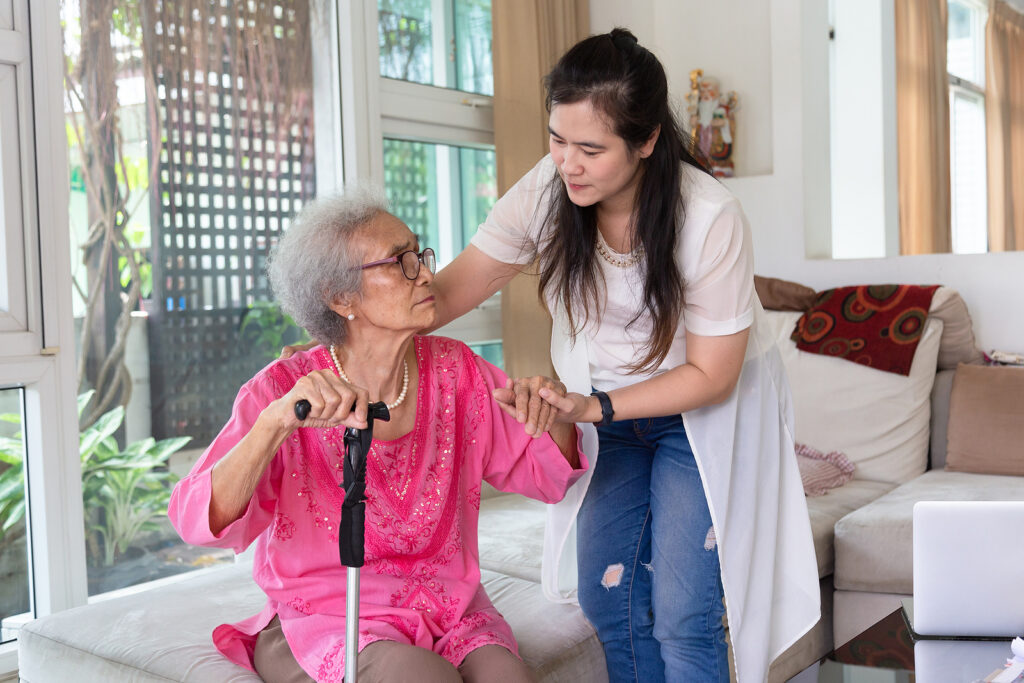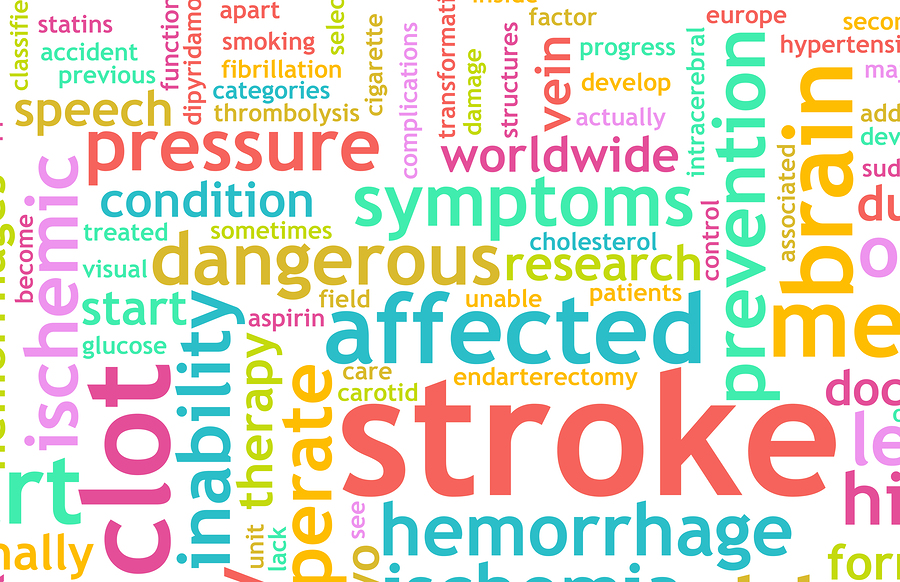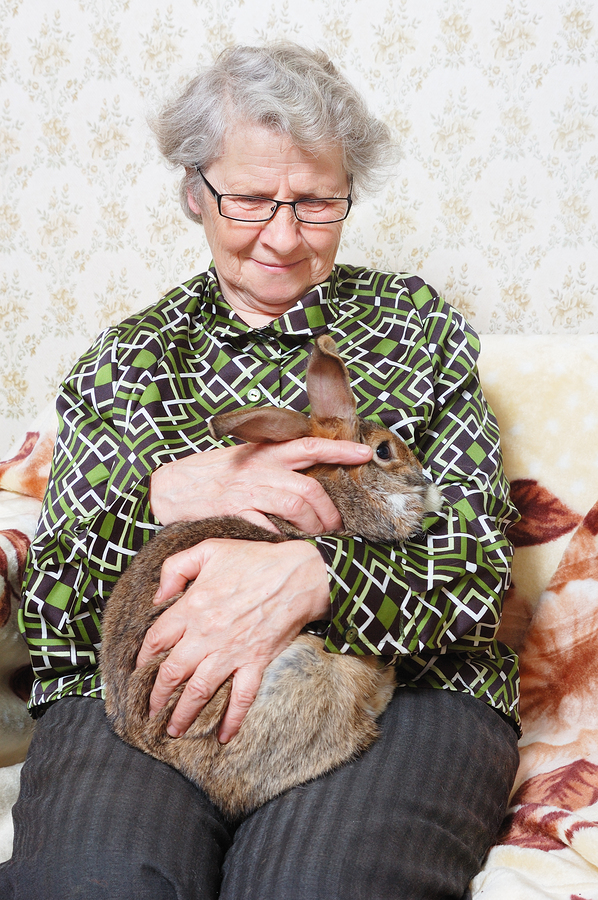How to Help with Hallucinations
Older adults with dementia sometimes suffer from hallucinations. When a senior hallucinate, they sense something that isn’t there.
Hallucinations can involve any sense – seeing, hearing, tasting, feeling, or smelling. They occur because of damage to the brain that causes it to misinterpret senses. Sometimes the hallucinations are frightening for the older adult. Other times, they might be pleasant. They can even be scary to family caregivers who aren’t certain what to do when they occur. Knowing how to respond to your aging relative’s hallucinations can make them less scary for both of you. Below are some tips for dealing with hallucinations.

Know If You Need to Respond
If the hallucination is pleasant for the senior or isn’t causing them any fear, you may not even need to respond to it. Instead, just know that the hallucination is a symptom of the disease and monitor the older adult for signs it is starting to bother them.
Never Argue
Regardless of what the hallucination is, do not argue with the older adult about what they are sensing. You may not see what they are seeing, but that doesn’t make it any less real to them. Instead of arguing, stay as calm as possible and simply acknowledge what they are experiencing. The damage dementia has caused in their brain makes it impossible for them to reason out the situation, so you won’t be successful in convincing them the hallucination isn’t there.
Try a Distraction
Sometimes distracting the older adult from the hallucination can make it go away. Try involving them in an activity that they like, such as doing a puzzle or making a craft. Or, offer them their favorite snack.
Move to Another Room
When a senior is having a visual hallucination, it can sometimes help to move them to a different room. The hallucination may not “follow,” so it could go away.
“Touch” the Hallucination
In some cases, it can help to ask the senior where the hallucination is and then reach out to “touch” it. Sometimes seeing that your hand doesn’t come in contact with anything allows the senior’s brain to realize the hallucination isn’t there.
Offer Reassurance
Above all else, the best thing you can do for someone who is hallucinating is to reassure them that they are safe. Speak in a gentle, reassuring tone to the senior. A gentle touch can also help.
If your aging relative is prone to hallucinations, an elderly care provider can help to deal with them when family caregivers are not around. An elderly care provider can be a reassuring presence. They can also try to distract the older adult. Elderly care providers may also have techniques for dealing with hallucinations that they’ve learned during their training and experience with other older adults.
If you or an aging loved-one is considering hiring Homecare in Louisville, CO, please contact the caring staff at Touching Hearts at Home today at 303-255-4071.
Sources
Alz.org
Dailycaring.com
Brightfocus.org
You may also like:
4 Home Remedies That Help Seniors With Dry Eyes
Seniors are often prone to having dry eyes. Check out these tips on helping alleviate the irritation, redness, and discomfort.
Flying Tips for Seniors
Flying can be a nightmare for everyone, but it's especially difficult for seniors. Try these tips from Senior Home Care…
Errands Challenge Your Dad, Hire Senior Home Care to Help
Your dad is happy living alone, but he struggles to complete errands. Find out how Senior Home Care in Longmont,…
Preventing Senior Falls
Preventing falls can make all the difference in your loved one's plan to age at home. Learn more about Senior…
Normal Brain Aging
What does normal brain aging look like? Senior Home Care in Thornton, CO can help your loved one as they…
How to Get a Good Night's Sleep as a Senior
Getting a good night's sleep is important for any senior. Use these tips and find Senior Home Care in Louisville,…
Make Sure Your Mom Doesn't Eat Alone
Home Care Boulder CO-How many of your mom's meals involve her eating by herself? Consider these facts about eating meals…
Understanding the Role of Senior Home Care Aides in Post-Stroke Care
Senior Home Care Westminster CO-You got the call that your mom suffered a stroke. Right now, your mind is being…
Engaging With Homebound Seniors
There are many challenges when an elderly loved one is homebound. See how Elderly Care in Greeley, CO can help.









